Kategorie: ‘Allgemein’
60-jähriges Jubiläum des Instituts für Hörtechnik und Akustik
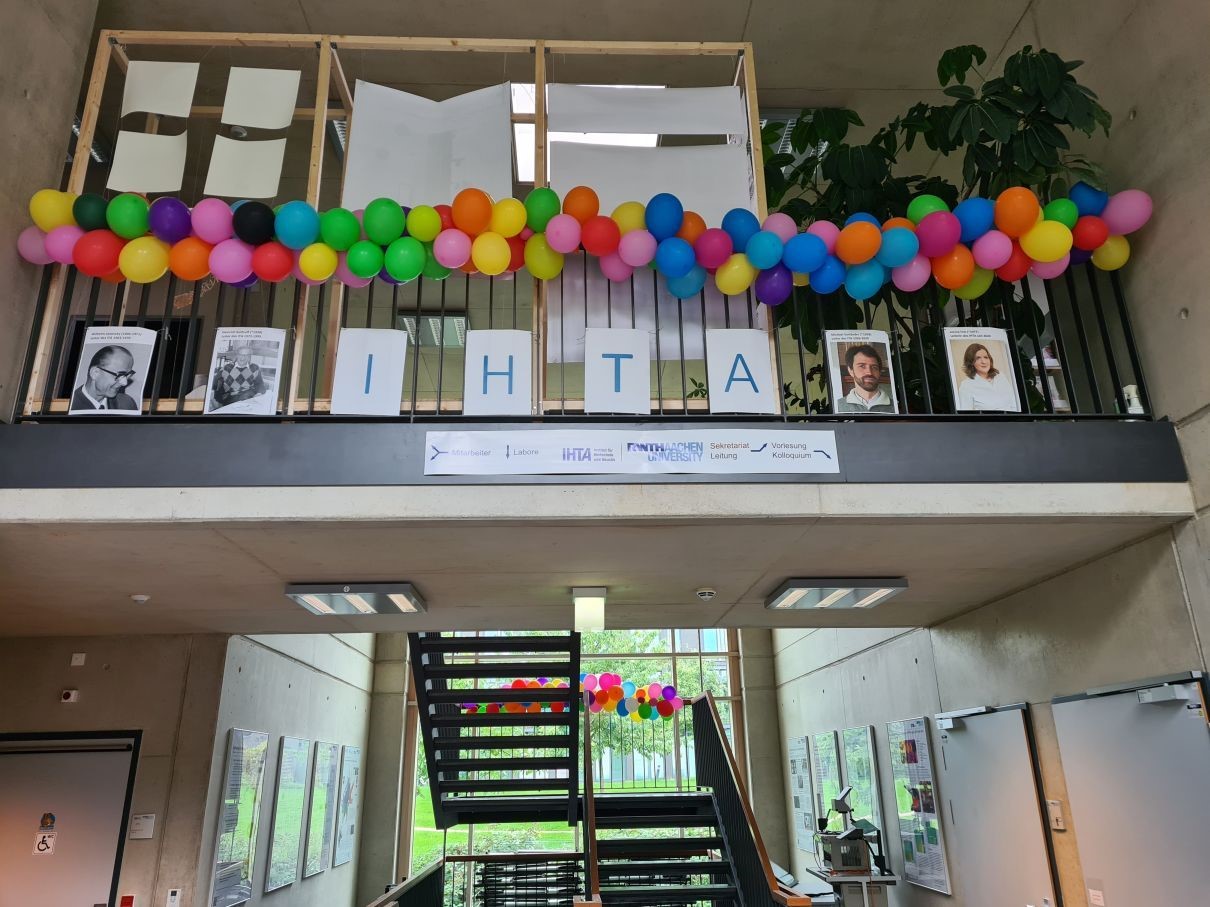
© Institut für Hörtechnik und Akustik
Einen besonderen Tag für das Institut für Hörtechnik und Akustik (IHTA/ITA), gestalteten alle aktiven und ehemaligen Institutsangehörigen am Samstag, den 19. August 2023, als sie sein 60 jähriges Bestehen feierten.
Das Institut für Technische Akustik wurde am 2. Januar 1964 offiziell unter der Leitung von Professor Wilhelm Janovsky gegründet und weist seitdem eine beeindruckende Geschichte in der Erforschung und Entwicklung von akustischen Technologien und Hörtechnik auf. Im Laufe der Jahre haben herausragende Persönlichkeiten die Leitung des Instituts übernommen, darunter Professor Heinrich Kuttruff im Jahr 1972, Professor Michael Vorländer im Jahr 1996 und schließlich Professorin Janina Fels, die seit 2020 die Leitung des heutigen Instituts für Hörtechnik und Akustik innehat.
Das Jubiläumsfest zog mehr als 120 ehemalige und aktive Mitglieder des Instituts an, die sich an einem Tag voller Feierlichkeiten und Aktivitäten beteiligten. Die Veranstaltung bot Führungen durch die Einrichtungen des Instituts und Demonstrationen aktueller Forschungsthemen, die die Fortschritte und Innovationen im Bereich der Akustik und Hörtechnik verdeutlichen. Natürlich durften Essen, Getränke und Live-Musik der IHTA-Band nicht fehlen, um die Feierlichkeiten abzurunden.
Ein besonderer Dank wurde der Gesellschaft für Technische Akustik e.V. (GfTA) zuteil, die maßgeblich zur Organisation und Durchführung dieser Jubiläumsfeier beigetragen hat. Die GfTA ist ein Verein, der sich auf die Förderung der Akustik in Aachen, insbesondere im Hinblick auf den Nachwuchs, konzentriert. Sie ermöglichte es, dass die Veranstaltung zu einem unvergesslichen Ereignis wurde und unterstützt und stärkt die Gemeinschaft der ehemaligen und aktiven Mitglieder sowie des Nachwuchses im Bereich der Akustik.
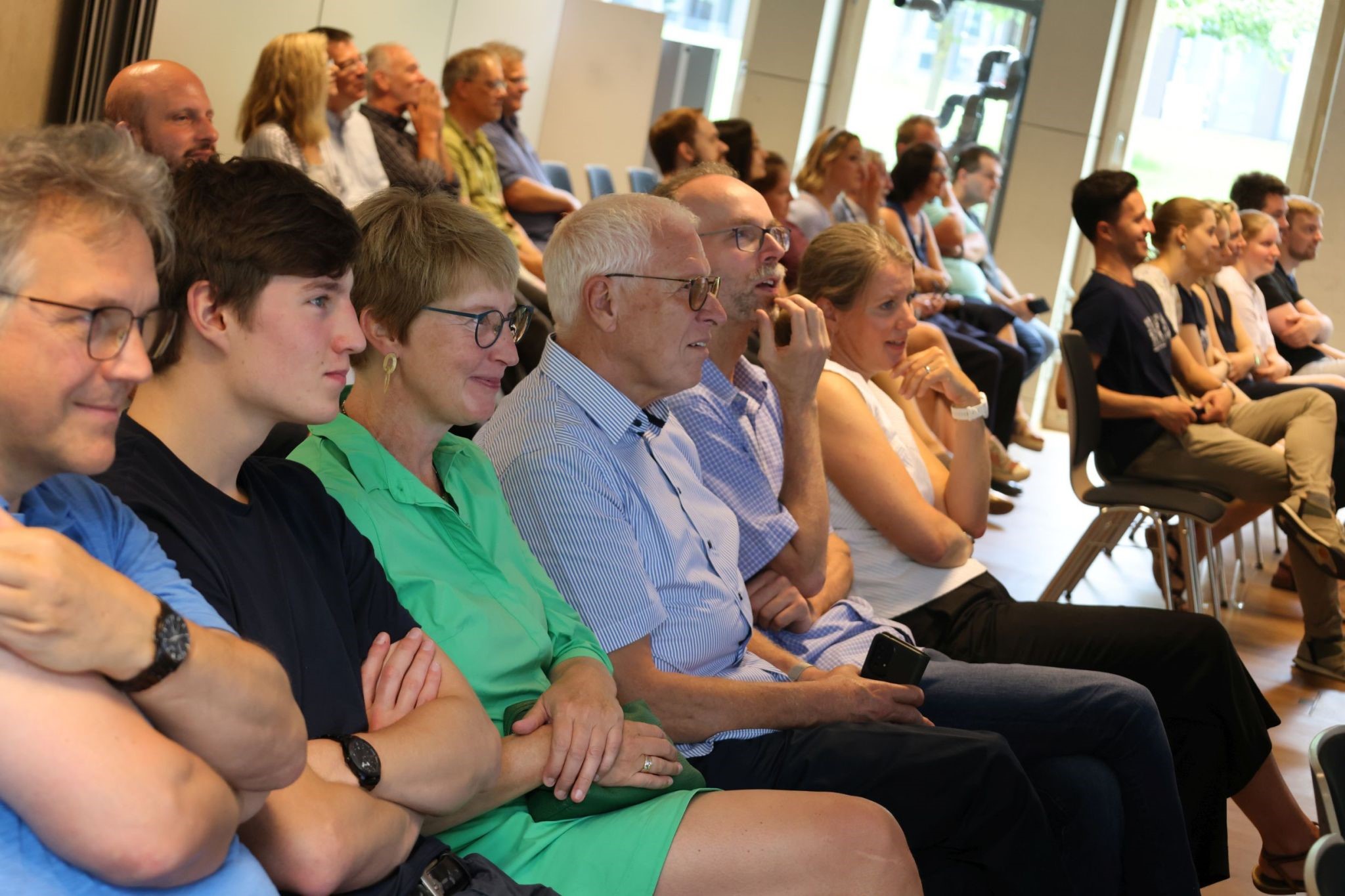
© Institut für Hörtechnik und Akustik
Mehr zur Jubiläumsfeier findet ihr auf dem Akustik-Blog. Ihre Ziele sowie weitere Informationen zur Gesellschaft für Technische Akustik e.V. und alle aktuellen News und Forschungsprojekte des Instituts für Hörtechnik und Akustik sind verfügbar.
Erste AUDICTIVE-Konferenz 2023
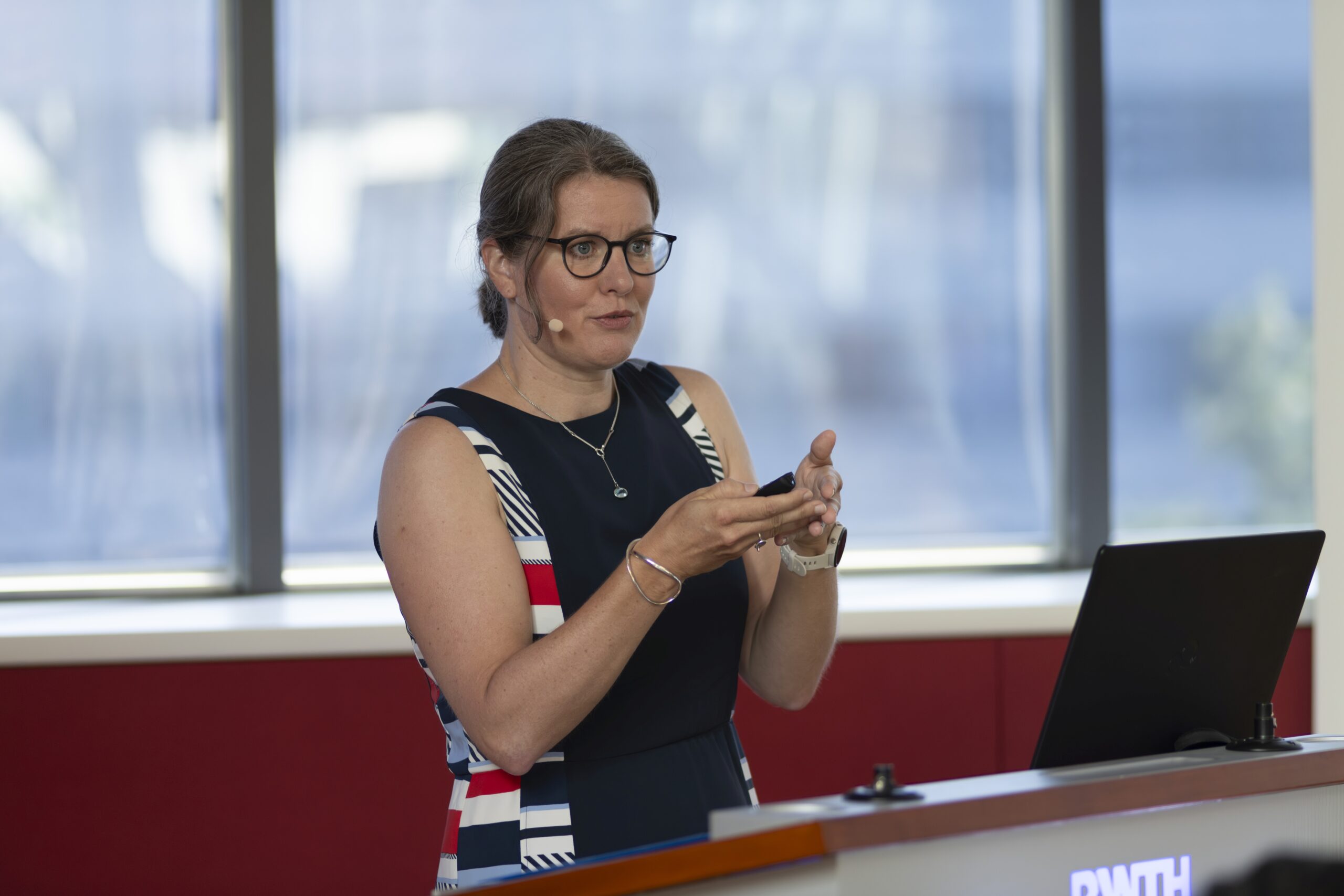
Professorin Janina Fels © Gottfried Behler, Janina Fels und Alexander Raake
Eine Konferenz wie ein Booster-Shot für die Dynamik der interdisziplinären Grundlagenforschung mit dem Ziel eine Brücke zwischen auditiver Wahrnehmung und Kognition einerseits und virtueller Realität andererseits zu schlagen.
Mit den jüngsten Entwicklungen bei Hardware- und Softwaretechnologien hat die audiovisuelle virtuelle Realität (VR) ein hohes Maß an Wahrnehmungsplausibilität erreicht, was die Beschränkungen einfacher Laborsituationen zu überwindet ermöglicht. Das schafft gute Voraussetzungen, um die Fähigkeit zur Interaktion mit einer komplexen audiovisuellen Szene – als Abbildung einer authentischen Lebenserfahrung zum Beispiel in einem Klassenzimmer, einem Großraumbüro oder aber als komplexe Kommunikationssituationen im Freien – in Abhängigkeit von akustischen, visuellen und weiteren kontextbezogenen Faktoren kontrolliert zu erforschen. Die Anwendbarkeit der resultierenden wissenschaftlichen Ergebnisse in der unmittelbare Lebenswelt, ebenso wie ihre Rückkopplung zur Qualitätssteigerung in der interaktiven audiovisuellen virtuellen Umgebungen und Qualitätsbewertungsmethoden der Schnittstelle beider Fachbereiche sind Themen der Konferenz und Forschungsgegenstand.
Anlässlich dieser multidisziplinären Herausforderungen lud Universitätsprofessorin Janina Fels vom Lehrstuhl für Hörtechnik und Akustik der RWTH Aachen Forscher aus den Bereichen Akustik, Kognitionspsychologie und Informatik zur ersten AUDICTIVE-Konferenz vom 19. bis zum 22. Juni 2023 ein. Das Ziel war dabei eine interdisziplinäre Zusammenarbeit in der Grundlagenforschung zu sichern und Synergieeffekte möglich zu machen, die von einer einzelnen Disziplin nicht erreicht werden können.
Gegenwärtig werden Forschungsanstrengungen meist getrennt innerhalb der einzelner wissenschaftlicher Forschungsgemeinschaften durchgeführt. Dies hindert die kognitive Psychologie und die Akustik daran, das enorme Potenzial der VR voll auszuschöpfen, um ihre bestehenden Theorien in den realistischeren, reichhaltigeren und interaktiven virtuellen Umgebungen zu testen und zu erweitern, die mit dem gegenwärtigen Stand der Technik in der VR-Technologie geschaffen werden können. Gleichzeitig kann die VR-Forschung vom Wissen über auditive Wahrnehmung und Kognition profitieren, um die wichtigen Qualitätskriterien zu verstehen, die erfüllt werden müssen, um die Wahrnehmung und kognitive Leistung der Nutzer sowie das subjektive Erleben und die (soziale) Präsenz in einer virtuellen Umgebung zu optimieren. Aufgrund des Mehrwerts der Zusammenarbeit und der Forschungsmethoden der drei Disziplinen ist zu erwarten, dass die Forschung in den Bereichen Hören, auditive Kognition und VR auf ein deutlich höheres Niveau gehoben werden kann.
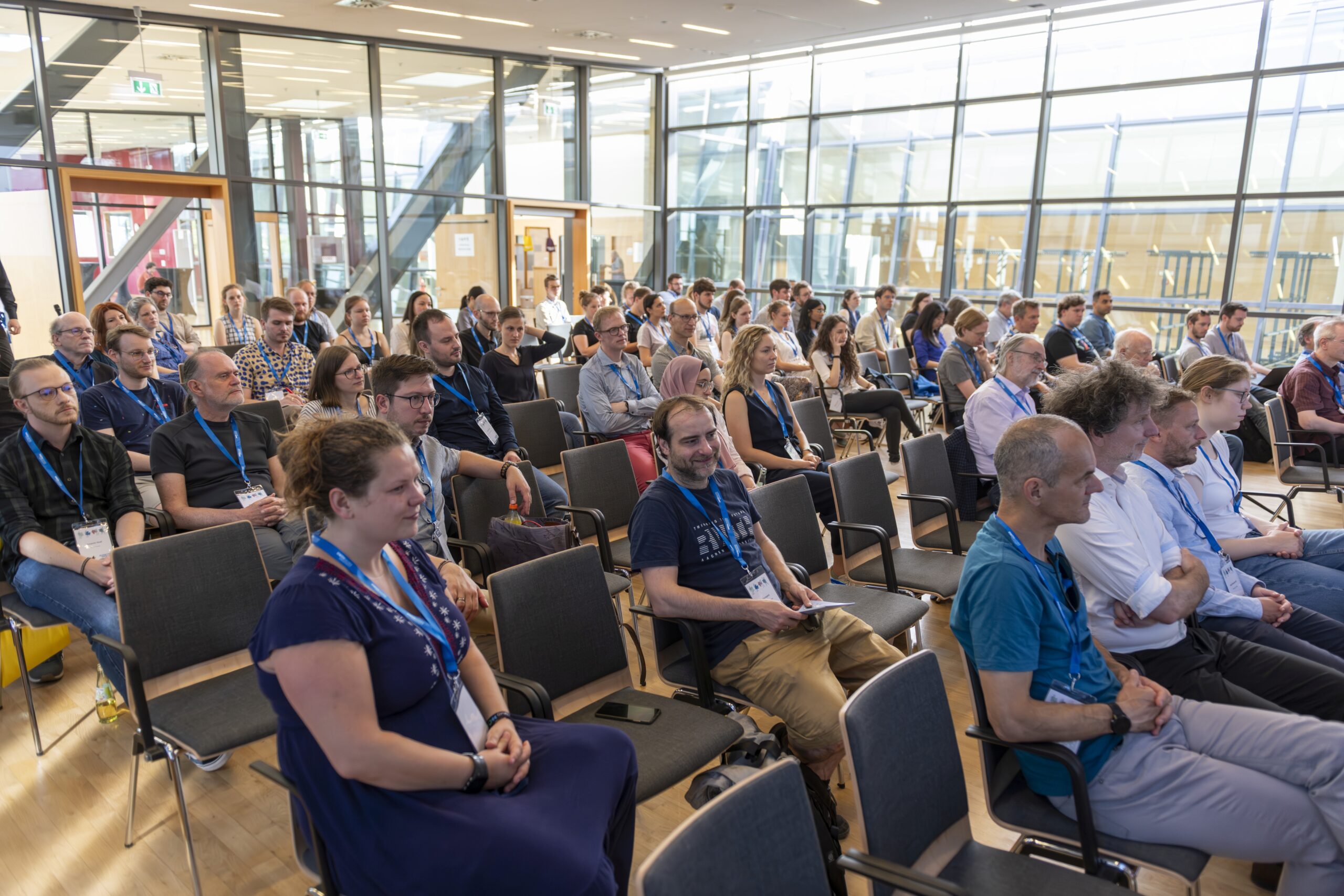
© Gottfried Behler, Janina Fels und Alexander Raake
In den Vorträgen der Konferenz wurden faszinierende Einblicke in in die Zukunft der Mensch-Computer-Interaktion, auditive Wahrnehmung und Virtual Reality geboten:
Professorin Barbara Shinn-Cunningham vom Carnegie Mellon Institute führte in Ihrer Präsentation aus, wie unser Gehirn die auditive Welt um uns herum wahrnimmt und bewertet. Dabei nutzt es die Interaktion zwischen willentlicher Top-Down-Aufmerksamkeit und unwillkürlicher Bottom-Up-Aufmerksamkeit, um sich auf einen Sprecher zu konzentrieren und gleichzeitig neue Schallquellen in unserer Umgebung zu verarbeiten. In diesem Vortrag untersuchte Professorin Shinn-Cunningham, wie periphere und zentrale Faktoren zusammen den kommunikativen Erfolg bestimmen, der in alltäglichen Umgebungen von erwarteten und unerwarteten Geräuschen beeinflusst wird. Den Schwerpunkt legte Sie auf die kortikalen Netzwerke, die den Wettbewerb um die Aufmerksamkeit vermitteln.
Professor Frank Steinicke von der Universität Hamburg präsentierte in seinem Vortrag die aufregende Entwicklung der Verschmelzung von erweiterter Realität (XR) und künstlicher Intelligenz (KI). Er betonte, wie diese Technologien nahtlose Übergänge zwischen realen und virtuellen Welten ermöglichen und das Potential haben, immersive Erfahrungen zu schaffen.
Dennoch ist die heutige immersive Technologie noch Jahrzehnte von der ultimativen Darstellung entfernt. Die Unzulänglichkeiten des menschlichen Wahrnehmungssystems, der Kognition und der Motorik können jedoch ausgenutzt werden, um die Realität so zu verbiegen, dass überzeugende immersive Erfahrungen möglich werden. In seinem Vortrag wurden einige XR-Illusionen vorstellen, die uns der ultimativen Verschmelzung von Intelligenz und Realität näher bringen.
Professorin Alexandra Bendixen von der TU Chemnitz sprach über ihre Forschung im Bereich der auditiven Wahrnehmung und Sensorik. Sie erläuterte, wie Sie Szenen mit mehreren Interpretationen erstellt und die Wahrnehmung von Hörern überwacht, um Faktoren zu untersuchen, die die auditive Wahrnehmung in mehrdeutigen Szenen stabilisieren. Die jüngsten Kombinationen von auditiver Multistabilität mit Eyetracking haben neue Einblicke in das Zusammenspiel von auditiver und visueller Multistabilität gegeben, mit Auswirkungen auf unser allgemeines Verständnis der Szenenanalyse über alle Sinne hinweg. Wenn die psychophysiologische Messlogik umgedreht wird, können Gehirnreaktionen im Zusammenhang mit sensorischen Vorhersagen verwendet werden, um bestimmte Aspekte der virtuellen Realität (VR) zu bewerten, z. B. die Angemessenheit von VR-Latenzen.
Weitere Informationen zur AUDICTIVE-Konferenz sind auf der offiziellen Website verfügbar.
„Die Welt von morgen“ in der Städteregion Aachen
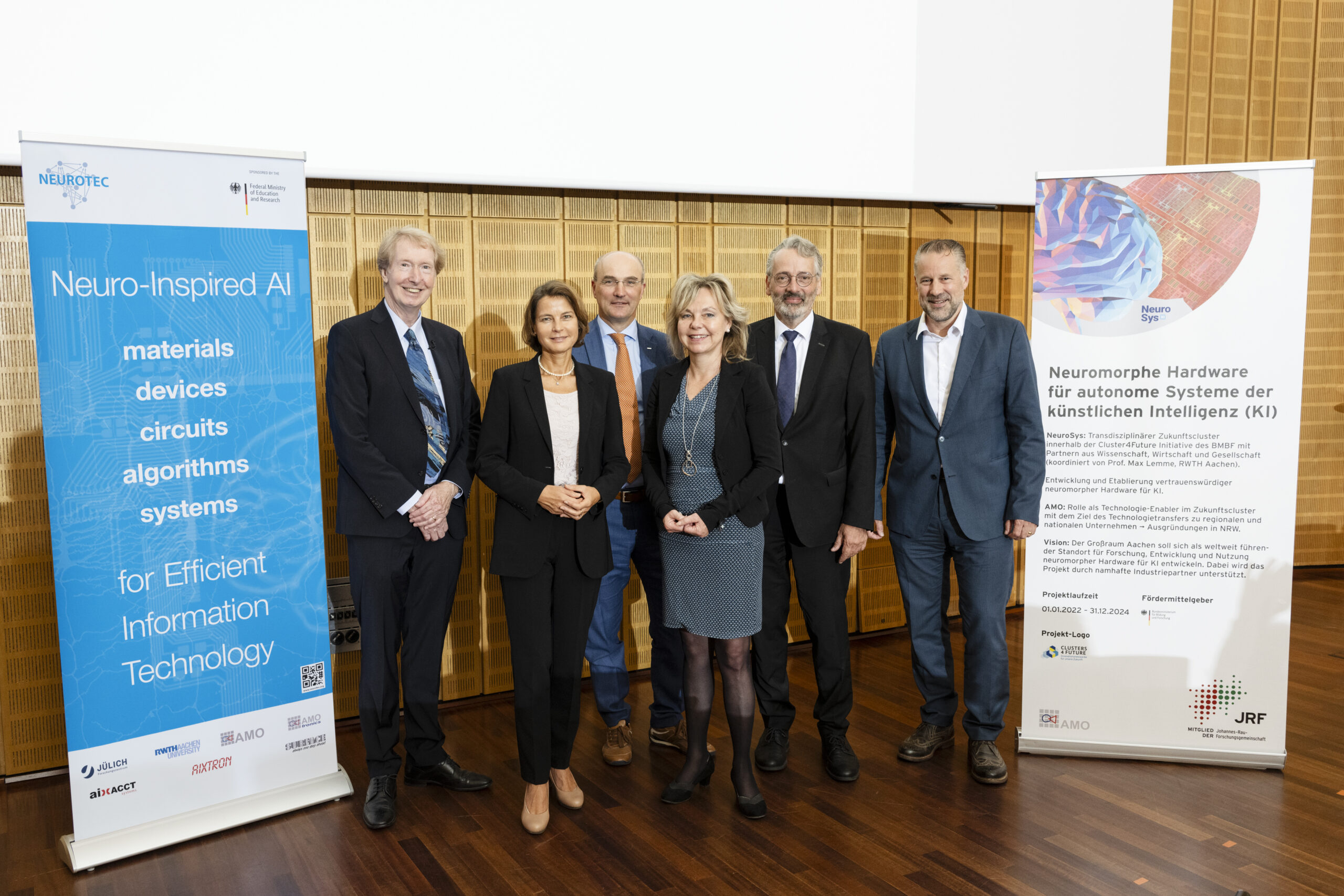
Von links nach rechts: NEUROTEC-Koordinator Prof. Rainer Waser, FZJ-Vorstandsvorsitzende Prof. Astrid Lambrecht, RWTH-Rektor Prof. Ulrich Rüdiger, BMBF-Staatssekretärin Prof. Sabine Döring, MKW-NRW-Landesministerialrat Thorsten Menne, NeuroSys-Koordinator Prof. Max Lemme © Kurt Steinhausen Forschungszentrum Jülich
Neuroinspirierte Computerchips könnten den entscheidenden Beitrag leisten, um den wachsenden Energiebedarf der Künstlichen Intelligenz (KI) zu bewältigen. Den aktuellen Stand und die Zukunftsperspektiven dieser wegweisenden Technologie präsentierten Forschende im Zuge des Jülich-Aachen Neuromorphic Computing Day am 30. August 2023.
Durch die Nachahmung der Arbeitsweise des menschlichen Gehirns bieten neuromorphe Chips eine enorme Steigerung der Energieeffizienz und eröffnen somit erst bahnbrechende Möglichkeiten für Anwendungen wie autonomes Fahren und Industrie 4.0 durch Echtzeit-Datenverarbeitung. In enger Zusammenarbeit der RWTH Aachen University, dem Forschungszentrum Jülich und Partnern von Hightech-Unternehmen und Start-ups gestaltet, boten die Forschenden Einblick in ihre Arbeit. Neben rund 200 Gästen aus Wissenschaft, Wirtschaft und Politik begleitete auch BMBF-Staatssekretärin Sabine Döring die Veranstaltung.
Die enge Kooperation von Forschungseinrichtungen und Unternehmen in der Region bildet das Herzstück dieser Initiative. Das Modell ermöglicht die direkte Übertragung von Forschungsergebnissen in die Wirtschaft und stärkt die regionale Innovationskraft. Dabei spielen nicht nur der regionale Strukturwandel und die Schaffung von Arbeitsplätzen eine Rolle, sondern auch die Vision einer unabhängigen Chipproduktion in Deutschland.
„Mit unserer Forschung spannen wir die gesamte Wertschöpfungskette auf, einschließlich soziologischer und ethischer Fragestellungen, die disruptive Technologien immer aufwerfen. Dadurch bieten sich auf vielen technologischen Ebenen Chancen für regionale Unternehmen und Startups, den Strukturwandel zu beschleunigen. Wir sehen bereits heute erste Effekte auf den Arbeitsmarkt und Unternehmensinvestitionen. Langfristig würde eine Halbleiter-Fertigung in der Region die vorhandene, umfassende und international anerkannte Expertise und Infrastruktur ideal ergänzen und die Attraktivität der Region für die hervorragend ausgebildeten Köpfe aus dem Forschungszentrum und der RWTH noch einmal deutlich erhöhen“, resümiert NeuroSys-Koordinator Prof. Max Lemme von der RWTH Aachen University und Geschäftsführer der AMO GmbH.
Die eindrucksvollen Zukunftsperspektiven dieser Technologie und die Zusammenarbeit von Forschung und Wirtschaft in der Region erzeugen somit eine Dynamik, die nicht nur wegweisende Technologien vorantreibt, sondern auch junge Talente dazu inspiriert, sich an der RWTH Aachen zu engagieren und einen Beitrag zu diesem aufregenden Forschungsfeld zu leisten.
Weitere Informationen zum Jülich-Aachen Neuromorphic Computing Day, sowie zu dem Projekt NEUROTEC und dem Zukunftscluster NeuroSys sind auf der Seite des Forschungszentrums Jülich zu finden.
Deutscher Studienpreis: Silber geht an Dominik Šišejković
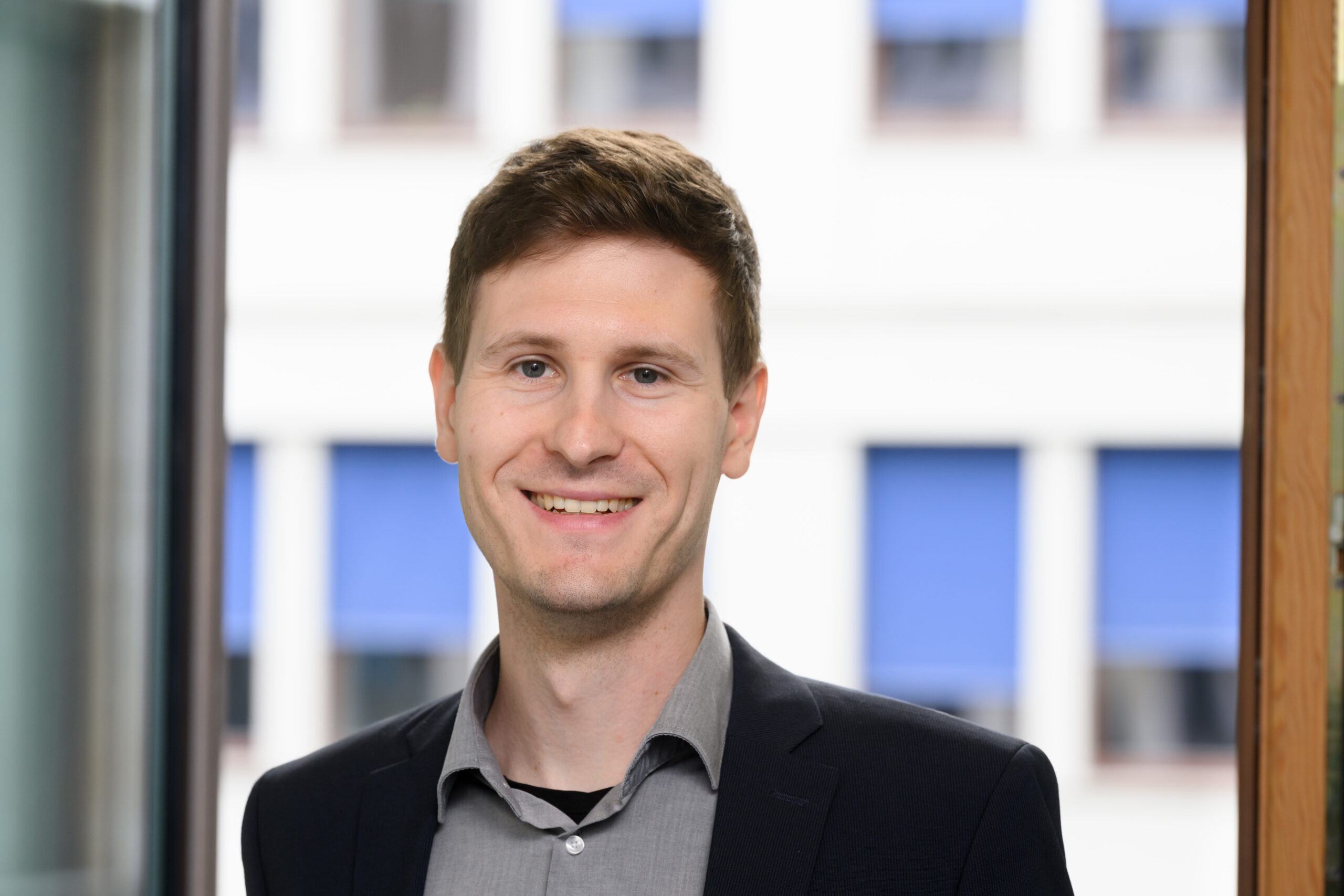
Preisträger Dominik Sisejkovic ©David Ausserhofer
Seine exzellente Dissertationen, Entwicklung vertrauenswürdiger Mikroelektronik – von der Theorie zur Praxis, ehrt die Körber-Stiftung am 27. November in der Deutschen Parlamentarischen Gesellschaft in Berlin mit dem Deutschen Studienpreis 2023. Dominik Šišejković erhält von Bundestagspräsidentin Bärbel Bas den zweiten Preis in der Sektion Natur- und Technikwissenschaften.
Im Mittelpunkt seiner Doktorarbeit steht die Frage, wie Hardware gegen dezentrale Modifikationen geschützt werden kann. Denn Hardware-Trojaner stellen eine der größten Sicherheitsbedrohungen des modernen Zeitalters dar. Eine solche sorgfältig konzipierte Modifikation ermöglicht es Angreifern, sich Zugang zu kritischen Infrastrukturen zu verschaffen, geheime Informationen zu extrahieren oder sogar Systeme im ungünstigsten Moment abzuschalten.
„In dieser Arbeit gehen wir Schritt für Schritt vor, um die Logikverschlüsselung zu verstehen, von ihrer grundlegenden Mechanik über die Software Implementierung bis hin zu einer tiefgreifenden Analyse der Sicherheitseigenschaften im Zeitalter des maschinellen Lernens“, erklärt Dominik Šišejković, Doktorand an der RWTH Aachen im Fachgebiet Elektrotechnik.
Eine mögliche Lösung verbirgt sich in der Logikverschlüsselung, einer führenden Technik zur Absicherung von Hardware. Die Ergebnisse wurden in einem industriebewährten Verschlüsselungsverfahren gebündelt, das einen sicheren Weg zum Schutz von Hardware ermöglicht.
Der Deutsche Studienpreis zählt zu den höchstdotierten wissenschaftlichen Nachwuchspreisen in Deutschland. Er zeichnet jährlich herausragende Nachwuchswissenschaftlerinnen und Nachwuchswissenschaftler aller Fachrichtungen aus. Für exzellente Dissertationen von besonderer gesellschaftlicher Bedeutung vergibt die Körber-Stiftung Preise im Gesamtwert von über 100.000 Euro.
Erste RWTH GreenTech Late Night im Theater Aachen
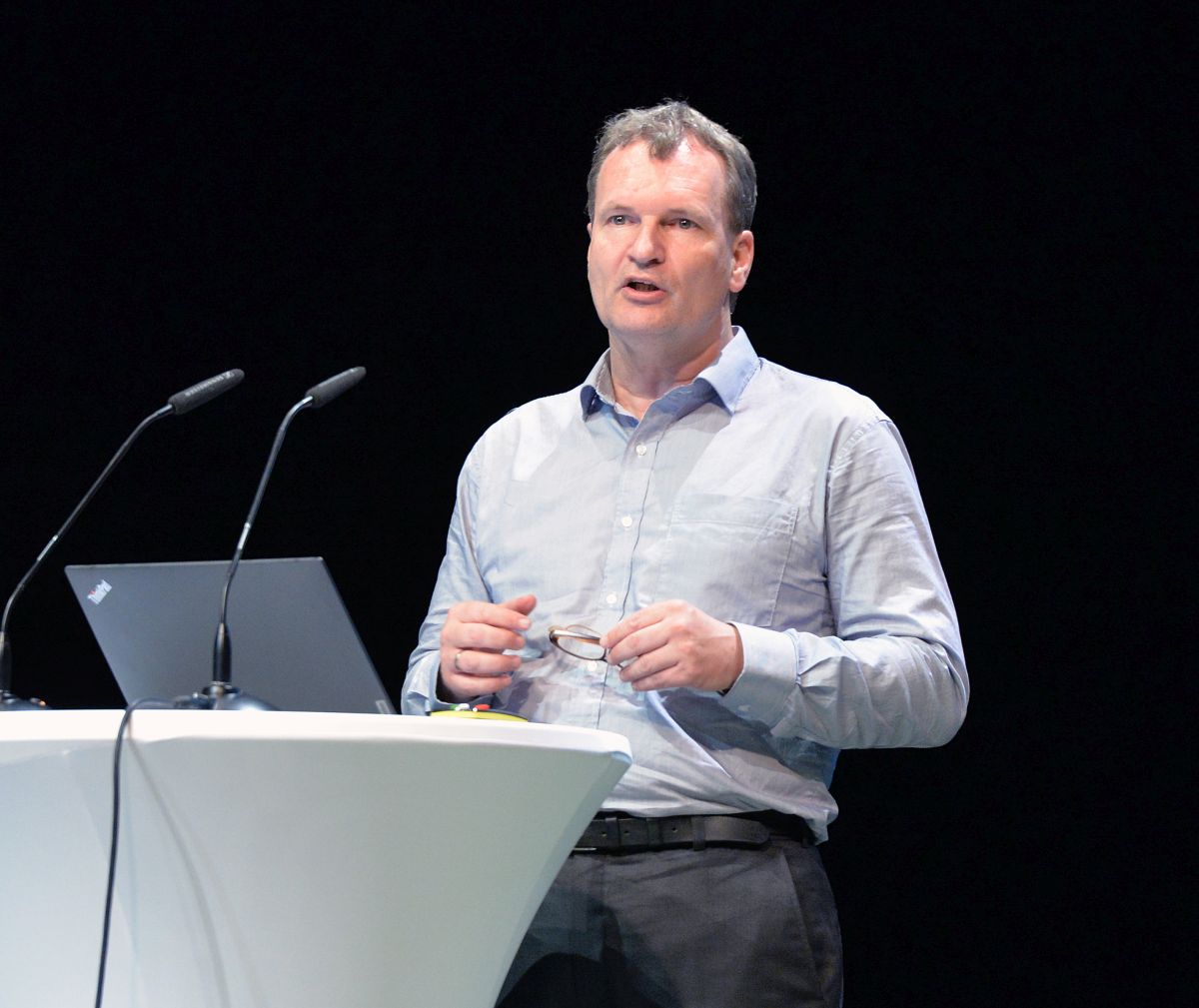
RWTH-Professor Dirk Uwe Sauer argumentiert die Sicht der Wissenschaft ©Andreas Schmitter
Bei der Geburtsstunde einer Plattform des Engagements und des Austauschs, der RWTH GreenTech Late Night, stand die akademische Welt im Theater Aachen am 19. Juni 2023 im Rampenlicht. Vertreten durch die RWTH-Professoren Kai-Uwe Schröder und Prof. Dirk Uwe Sauer nahm die Wissenschaftsperspektive eine Hauptrolle ein und vermittelte, wie essenziell es ist, wissenschaftliche Erkenntnisse über den Klimawandel und die zugrundeliegenden Technologien aktiv in die breitere Gesellschaft zu kommunizieren, um das Bewusstsein zu schärfen und kollektive Maßnahmen zur Bekämpfung des Klimawandels zu fördern. Dabei ist der Dialog zwischen Forschung, Technik und Politik in einer Zeit grundlegender Veränderungen und Umbrüche unerlässlich.
„Die Initiative zu der Veranstaltung finde ich sehr gut. Wir brauchen viel mehr Kommunikation aus der Wissenschaft heraus in die Gesellschaft in diesen Zeiten fundamentaler Umbrüche“, resümiert Professor Dirk Uwe Sauer, Batterieexperte der RWTH Aachen.
Die erste RWTH GreenTech Late Night im Theater Aachen war ein beispielloses Ereignis, das die Grenzen zwischen Wissenschaft, Technik und Gesellschaft überbrückte. Dabei wurde das Theater zu einer lebendigen Arena des Wissensaustauschs, bei dem Experten, Visionäre und Kreative zusammenkamen, um die dringendsten Herausforderungen im Bereich Klimaschutz zu diskutieren.
Diese außergewöhnliche Veranstaltung bot ein facettenreiches Programm, das von Impulsvorträgen und Interviews bis hin zu künstlerischen Lesungen und kabarettistischen Einlagen reichte. Durch die Vielfalt der Formate wurde ein umfassendes Bild der komplexen Thematik gezeichnet und gleichzeitig die Lebendigkeit und Dynamik der akademischen Welt betont.
Die RWTH GreenTech Late Night zeigte eindrucksvoll, wie Innovation und Wissenstransfer in Zeiten des Klimawandels vorangetrieben werden können. Die Veranstaltung ermutigte dazu, neue Wege der Zusammenarbeit zwischen Wissenschaft, Technik, Politik und Kultur zu finden und so gemeinsam einen nachhaltigen Weg in die Zukunft zu gestalten. Diese Plattform wird zweifellos weiterhin eine wichtige Rolle bei der Gestaltung der globalen Klimaagenda spielen.
Detaillierte Informationen zu dem Ablauf und den Gästen der Veranstaltung sind unter GreenTech Late Night – Herz und Ohr für die Wissenschaft in der Klimakrise verfügbar.
Die Stimmen zur GreenTech Late Night geben das Meinungsbild der Gäste wieder, die sich mit der Klimakrise und möglichen Auswegen auf ihre eigene Art und Weise beschäftigen.
Der Reichart-Preis 2023 geht an Dr.-Ing. Weihan Li
Prof. Frank Hellwig und Prof. Peter Scharff verleihen Dr. Weihan Li den Reichart-Preis 2023 © Mathias Brösicke
Ein bemerkenswerter Beitrag zur anwendungsbezogenen Wissenschaft wurde gewürdigt, als Dr.-Ing. Weihan Li am 24. Juni 2023 den begehrten Reichart-Preis erhielt. Der Nachwuchsgruppenleiter am Center for Ageing, Reliability and Lifetime Prediction for Electrochemical and Power Electronics Systems (CARL) an der RWTH Aachen wurde für seine wegweisenden Arbeiten in der Digitalisierung der Batterienutzung mit einem digitalen Zwilling ausgezeichnet. Dieser innovative Ansatz zielt darauf ab, mehr Klarheit über Alterungsprozesse, Sicherheit und Zuverlässigkeit von Batterien zu schaffen.
Der verliehene Preis, benannt nach Christian Reichart, einem vielseitigen Erfurter, zeichnet jährlich herausragende Graduierungsarbeiten verschiedener wissenschaftlicher Bereiche aus. Die Kooperation zwischen der Landeshauptstadt Erfurt, der Universität und der Fachhochschule Erfurt stellt sicher, dass dieser Preis vielversprechende Nachwuchswissenschaftler fördert, deren Arbeiten einen klaren Bezug zur Anwendbarkeit aufweisen. Dabei wird das Erbe und die Vision von Christian Reichart geehrt, der sich bereits im 18. Jahrhundert als Vorreiter interdisziplinärer Forschung und gemeinnütziger Anwendungen profilierte. Die Preisfindungskommission, bestehend aus Vertretern dieser Institutionen, wählt die Gewinner aus und honoriert mit einem Preisgeld in Höhe von 2.000 Euro vielversprechende Forschungsansätze und stärkt den interdisziplinären Austausch. Diese Auszeichnung unterstreicht die Bedeutung, wissenschaftliche Erkenntnisse zum Wohl der Gesellschaft einzusetzen und Brücken zwischen unterschiedlichen Disziplinen zu schlagen, um praktische Lösungen für aktuelle Herausforderungen zu schaffen.
Mehr zu dem Reichert-Preis findet ihr auf der Seite der Akademie zu Erfurt.
CO2For-IT: Ein Datenraum für die Holzbranche mit Klimaschutz im Fokus
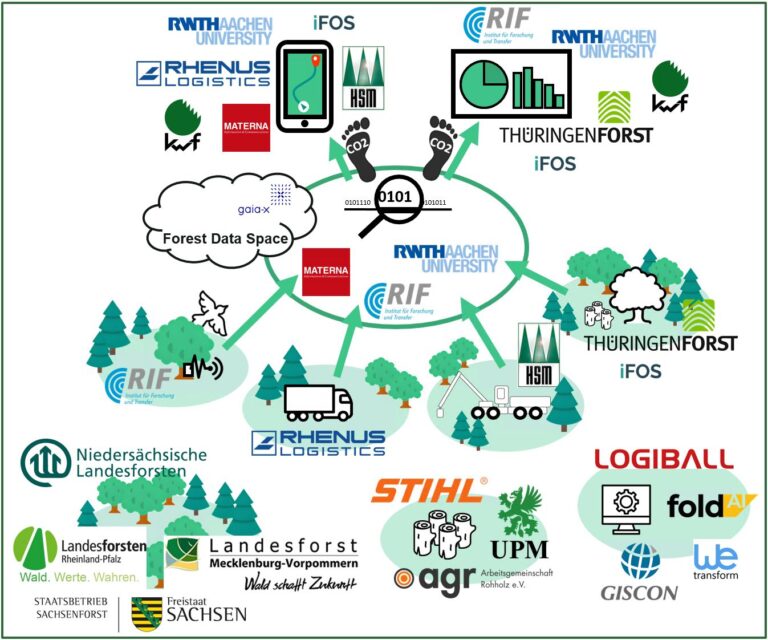
Projektpartner in CO2For-IT. © Institut für Mensch-Maschine-Interaktion RWTH Aachen
Eine neue Initiative zur Förderung einer klimafreundlichen Holzindustrie wurde im Juli 2023 gestartet. Das Projekt CO2For-IT, das vom Bundesministerium für Wirtschaft und Klimaschutz unterstützt wird, zielt darauf ab, einen “Forest Data Space” zu schaffen, der die nachhaltige Nutzung von Holz aus dem Wald ermöglicht.
Der Forest Data Space soll Daten über die CO2-Bilanz der gesamten Holzwertschöpfungskette bereitstellen und so die Entwicklung von datenbasierten Lösungen für den Klimaschutz unterstützen. Das Projekt wird von Materna Information & Communications SE geleitet und vom Dortmunder Institut für Forschung und Transfer (RIF e.V.) koordiniert. Zu den weiteren Partnern gehören die RWTH Aachen University, Rhenus Forest Logistics GmbH & Co. KG, HSM Hohenloher Spezial Maschinenbau GmbH & Co. KG, Forstliches Forschungs- und Kompetenzzentrum Gotha (ThüringenForst – AöR) und Kuratorium für Waldarbeit und Forsttechnik e. V. (KWF). Außerdem arbeiten foldAI und iFOS GmbH mit dem Projekt zusammen.
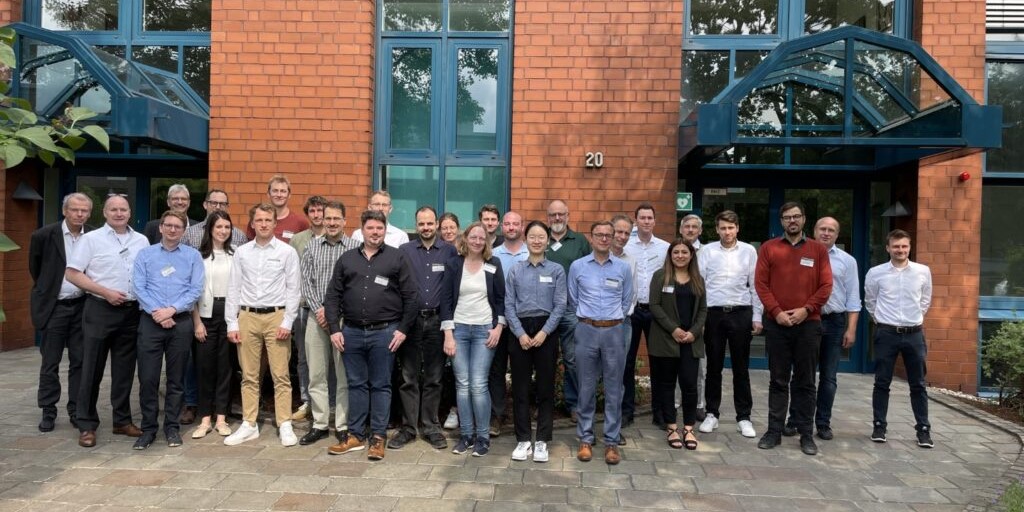
© Institut für Mensch-Maschine-Interaktion RWTH Aachen
Mehr Informationen zum Forschungsvorhaben gibt es unter: KWH 4.0 | CO2For-IT (kwh40.de)
Das MedIT blickt auf 20 Jahre Geschichte zurück

Happy Birthday!
Seit der Gründung des Lehrstuhls für Medizinische Informationstechnik (ehemals Philips-Lehrstuhl für Medizinische Informationstechnik) am 01.08.2003 hat sich viel getan: neue Forschungsbereiche wurden erschlossen, internationale Kooperationen wurden aufgebaut, eine Außenstelle wurde eröffnet und viele junge Doktorandinnen und Doktoranden haben hier ihren Abschluss erlangt.
Das MedIT ist dankbar und stolz auf diese Entwicklung und möchte sie gerne mit alten und neuen Kollegen, Partnern und Freunden teilen.
Aus diesem Anlass wird im September 2023 eine Jubiläumsfeier stattfinden, die auch ein Symposium umfasst, in dem das MedIT über die Vergangenheit und Zukunft des Lehrstuhls sowie der Medizintechnik in Aachen und der Welt diskutieren möchte.
Weitere Informationen über das Vortragsprogramm: Das MedIT feiert sein 20-jähriges Bestehen (rwth-aachen.de)
Neue Perspektiven für die Kommunikationstechnologie: Eine deutsch-japanische Partnerschaft
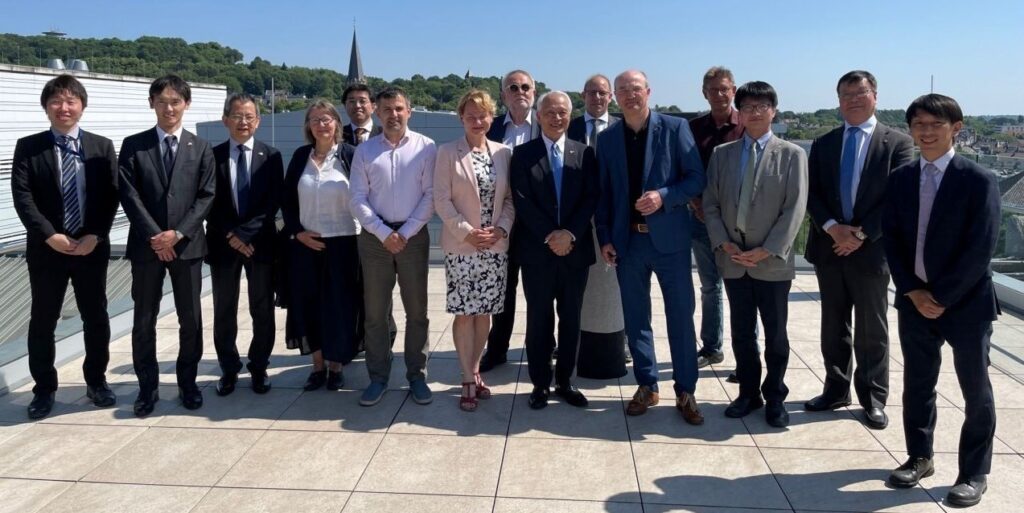
Eine Delegation des National Institute of Information and Communication Technology (NICT) in Japan besuchte die RWTH Aachen zur Unterzeichnung eines Memorandums of Understanding.
© RWTH Aachen University
Eine spannende Kooperation im Bereich der 5G/6G-Mobilfunktechnik hat die RWTH mit dem National Institute of Information and Communication Technology (NICT) in Japan gestartet. Das wurde durch ein Memorandum of Understanding besiegelt, dass Professor Ulrich Rüdiger und Professor Hideyuki Tokuda, Präsident des NICT, im Juni unterzeichnet haben. Sie empfingen eine Delegation des NICT an der RWTH Aachen.
Das Memorandum of Understanding soll die akademische Zusammenarbeit zwischen den beiden Partnereinrichtungen stärken und ausbauen. Dazu gehören der Austausch von Wissenschaftlerinnen und Wissenschaftlern sowie Studierenden, gemeinsame Forschungsprojekte, Publikationen und der Wissenstransfer zur 5G/6G-Mobilfunktechnik.
Die Kooperation wurde im Rahmen des BMBF-geförderten Forschungsprogramms „6GEM Research Hub“ angestoßen, das von Professor Haris Gačanin vom Lehrstuhl für Verteilte Signalverarbeitung der RWTH koordiniert wird. In dem Projekt forschen die RWTH Aachen, die Ruhr-Universität Bochum, die Technische Universität Dortmund und die Universität Duisburg-Essen zusammen mit dem Fraunhofer-Institut für Materialfluss und Logistik, dem Fraunhofer-Institut für Mikroelektronische Schaltungen und Systeme, dem Fraunhofer-Institut für Hochfrequenzphysik und Radartechnik sowie dem Max-Planck-Institut für Sicherheit und Privatsphäre an zukünftigen Kommunikationstechnologien in der 6G-Mobilfunktechnik.
Quelle: Pressemitteilung der RWTH: Forschungskooperation mit dem NICT in Japan – RWTH AACHEN UNIVERSITY – Deutsch (rwth-aachen.de)
Energiepark Herzogenrath: Lehrstuhl für Elektrochemische Energiewandlung und Speichersystemtechnik forscht mit
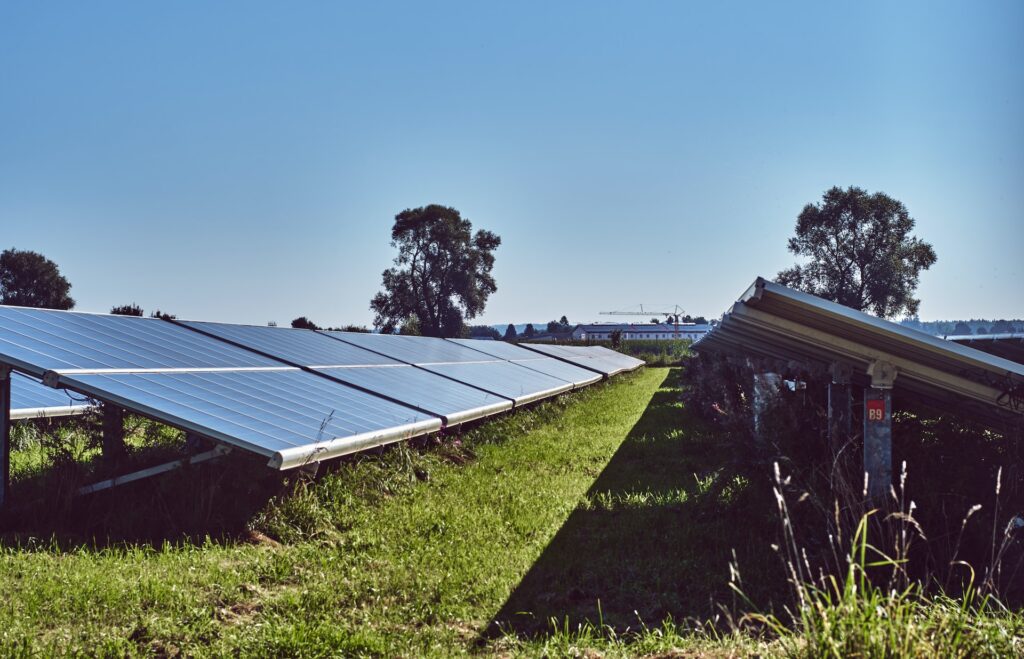
© Michael Förtsch by Unsplash
Das Projekt zur CO2-neutralen Energieversorgung in Herzogenrath, der ersten Stadt in NRW, die dieses Ziel anstrebt, wird von einem Konsortium aus vier Lehrstühlen und Instituten begleitet, unter anderem auch vom Lehrstuhl für Elektrochemische Energiewandlung und Speichersystemtechnik.
Herzogenrath will bis 2030 CO2-neutrale Energieversorgung erreichen. Ein Konsortium aus Siemens Energy, RWTH Aachen, FH Aachen und Hochschule Niederrhein forscht dazu im Projekt „Energiepark Herzogenrath Forschung & Entwicklung“, das vom Bundesministerium für Wirtschaft und Klimaschutz mit 2,7 Millionen Euro gefördert wird. Das Projekt ist zudem eng verzahnt mit weiteren laufenden Forschungs- und Förderprojekten: beim ortsansässigen Flachglas Produzenten Saint Gobain wird eine CO2-freie Produktion erforscht, an der der Lehrstuhl für Elektrochemische Energiewandlung und Speichersystemtechnik am E.ON Energy Research Center (ERC) der RWTH involviert ist. Das Ziel ist, die Wärme, die bei der Glasproduktion in Herzogenrath und im niederländischen Kerkrade entsteht, als grüne Heizenergie zu verwerten.
Das Projekt nutzt einen Digitalen Zwilling, der die Energieversorgung virtuell abbildet und simuliert. So können verschiedene Szenarien getestet und optimiert werden. Das Projekt betrachtet sektorenübergreifend Erzeugungs-, Verbrauchs- und Vermarktungsmöglichkeiten. Die RWTH erhält dafür rund 918.000 Euro Förderung.
Mehr Informationen zu dem Vorhaben sind unter Energiepark Herzogenrath – Strukturwandel Rheinisches Revier (revier-gestalten.nrw) sowie bei CO2-neutral bis 2030: Forschungsprojekt Energiepark Herzogenrath mit rund 2,7 Millionen Euro gefördert | Wirtschaft NRW zu finden.



